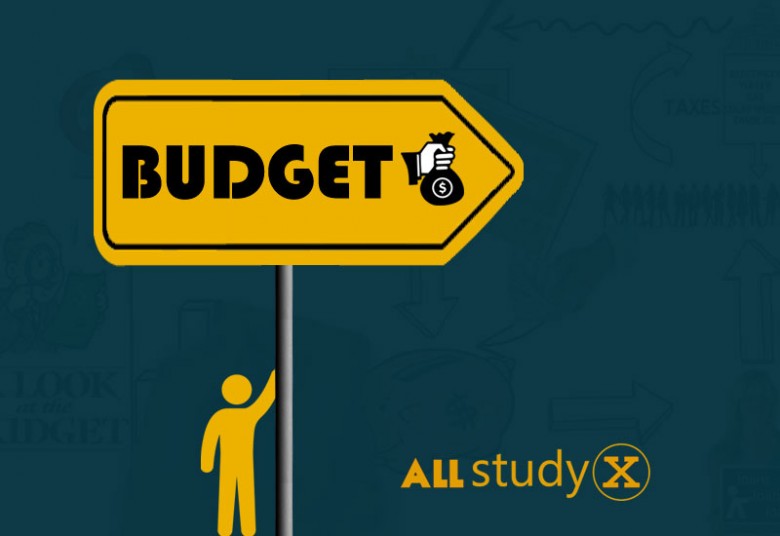Indian Budget 2016 has come up as a document containing all the initiatives announced in last two years term of Modi government. Make in India, Swachh Bharat, Digital India, Housing for All 2022, Start up and Stand up India all the most talked government schemes to boost the economic environment and business sentiment were on the list of this budget. Budget 2016 can be described as pragmatic, no big bang budget in an attempt to take India to the next leap of growth in coming years.
Indian budget 2016 has strong push towards infrastructure and sustainable economic growth as in the last years, as lacs of crores are planned in budget for infrastructure development across India. Stage is set for the private players too, to invest and earn from this economic turnaround as government is keen interested for investment by all means say it government spending, investments from foreign countries or investment from private arms.
Many sops are offered by government to private players such as concessions for new manufacturing companies in form of corporate tax which will all help the “Make in India” and boost growth. History has shown us time and again over the last few decades that when public expenditure on infrastructure has picked up, demand pick up happens and helps grow Gross domestic product of the nation. Easy land acquisition laws, tax rebates, smooth labour laws, increase in FDI and FII limits, single window clearance for new investment plans, technology transfer agreements with foreign countries to boost manufacturing in India only to support Make In India campaign is quintessentially pro economy and is a part of ease of doing business strategy.
Lot was discussed and lot was expected from this budget for Prime Minister Narendra Modi’s most visible and much supported Start-up India and Stand-Up India campaigns to boost jobs and investment in country by encouraging entrepreneurs to start new firms. Start-up entrepreneurs were expecting Finance Minister Mr. Arun Jaitley to mirror the sentiments of Modi and start-up community in his Budget which would help start-ups thrive and give a leg up to the economy.
The start-up community has provided a mixed response to Budget 2016 . Top IT entrepreneurs and industry experts said that there were sentiments for better offers in this budget for IT industry and start-ups but it has addressed few issues including ‘ease of doing business’ in India. They are disappointed that taxation norms for software companies were not relaxed as IT companies play big role in Indian economy and economic development. However, government’s decision to allow for 100 per cent deduction of profits for three out of five years between April 2016 and March 2019 is certainly a welcome step that will boost start-up culture in India.
Software product think-tank iSPIRT the lobby group of home grown software product firms, which works closely with over 900 product firms, said ‘ease of doing business’ in India has been positively impacted by the Union budget 2016. The Start-up India Action Plan lists out a comprehensive set of structural and regulatory reforms in order to achieve this. Income tax exemption, easing compliance through reduction of lengthy regulations and having fixed qualifications to define what a ‘start-up’ is, were expectations at the top of the entrepreneurial wish-list.
But the Action Plan goes further. It goes on, for instance, to provide an 80 per cent waiver on patent filing fees by start-ups, provide advisory services and create a Rs.10,000 crore fund-of-funds which is to be managed by professionals drawn from the private sector. These are just a few of the appreciated deals for start-up entrepreneurs under the Action Plan.
The most obvious and tangible benefits to start-ups under the budget are the tax breaks and funding support. The Action Plan waives income tax on profits for a period of three years and also exempts taxes on capital gains which are invested in the ‘fund-of-funds’. This move will help to reduce cash outflows and bring down the cost of running a start-up. Pending reforms like the GST regime would also make it easier for small start-ups to operate across the country.
A significant benefit a start-up accrues under this policy is the waiver from labour inspections for 3 years under ‘ease of doing business’ policy. Centralized system is expected to be formed under ‘Start-up India Hub’ which will assist start-ups by providing advisory services on financing, business structure, improving skills or anything required to grow these businesses. This centralized system will act as a single point of contact between entrepreneurs, regulators and the government which will simplify the things for businesses.
An inter-ministerial body led by Department of Industrial Policy and Promotion (DIPP) is roped in by government to examine whether an enterprise is ‘Innovative’. It also requires recommendation from an incubator setup by the government or be supported by an incubator in a post-graduate institution recognized by the government which is against the very theme of government to reduce its involvement in running or starting business. This additional layer of bureaucracy will eventually create burden and slow down the process of doing business.
AllstudyX View:
We at Allstudyx, being a start-up are optimist about positive results of policies made by government and would like to see subsequent changes made if required to help grow Indian businesses. Tax breaks, Rs. 10,000 crore ‘fund-of-funds’, waiver from labour inspections for three years, advisory services provided by incubator centers, single window clearance and other such supportive activities can create fertile land for home grown businesses for long time.
[sgmb id=1]



